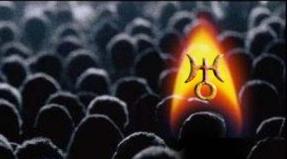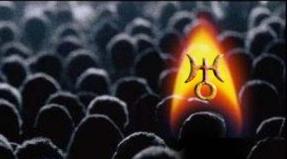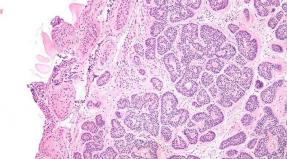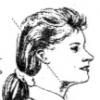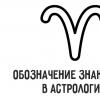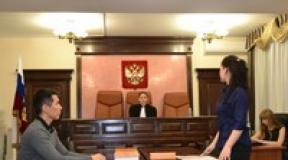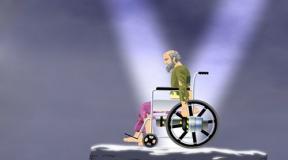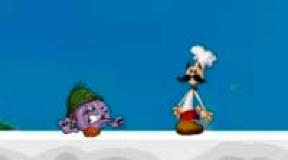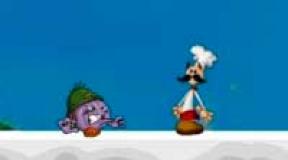Lenin full name Surname Patronymic. Where was Lenin born? In what city? "More than alive"
Figure Vladimir Ilyich Lenin attracts close attention of historians and politicians around the world without a small age. One of the most tabulated topics in Leninians in the USSR is the origin of Lenin, his pedigree. The same topic was exposed to the greatest speculation by the geopolitical opponents of the state, whose founder and the "banner" was V.I. Lenin.
Mystery biographies Lenin
How did the children become hereditary nobles, why did the Soviet power classified information about the ancestors of the leader on the maternal line and how in the early 1900s Vladimir Ulyanov turned into Nikolay Lenin?
Family of Ulyanov. From left to right: stand - Olga, Alexander, Anna; Sit - Maria Alexandrovna with the youngest daughter Maria, Dmitry, Ilya Nikolaevich, Vladimir. Symbirsk. 1879 year. Granted M. Zolotarev
Biographical Chronicle V.I. Lenin "begins with the record:" April, 10 (22). Vladimir Ilyich Ulyanov (Lenin) was born. Father Vladimir Ilyich - Ilya Nikolayevich Ulyanov was at that time an inspector, and then - Director of People's School of School of Sybir Province. He took place from the poor meshman of the city of Astrakhan. His father was previously a serf peasant. Mother Lenin Maria Alexandrovna was a daughter of a doctor A.D. Blanca. "
It is curious that Lenin himself did not know many details of his pedigree. In their family, as in the families of other differences, it was somehow not accepted to dig in their "genealogical roots". This is later, after the death of Vladimir Ilyich, when his sisters began to grow interest in such problems, his sisters were engaged in these surveys. Therefore, when in 1922, Lenin received a detailed form of a party census, on the question of the kind of grandfather's classes from the paternal side, he sincerely replied: "I do not know."
Grandson serf
Meanwhile, grandfather, great-grandfather and Prapraded Lenin on the father's line were indeed serfs. Prapraded - Nikita Grigorievich Ulyanin - Born in 1711. According to the auditive fairy tale, 1782, he was recorded with the family of the younger son of Fefan as the yard man of the village of Androsov Sergachsky district of the Nizhny Novgorod governor Marfi Semenovna Meakinina.
According to the same revision, his eldest son Vasily Nikitich Ulyanin, 1733 years of birth, with his wife Anna Semyonovna and children Samoile, Porphyria and Nikolai lived there, but were listed by the yard Cornet Stepan Mikhailovich Brekhov. According to the audit of 1795, Grandfather Lenin Nikolai Vasilyevich, 25 years old, idle, lived with his mother and brothers all in the same village, but they were already the yard people of Mikhail Stepanovich Brekhov.
He, of course, was to me, but he was no longer in the village of him ...
The Astrakhan archive stores the document "Lists of the expected expected to counted runaway from different provinces of landlords", where number 223 recorded: "Nikolai Vasilyev Son Ulyaninor ... Nizhny Novgorod province, Sergach district, Slokhrosov, the landlord of Stepan Mikhailovich Brekhova, a peasant. I left in 1791. " He was fluent or released on the intervals and bought out - it is not known for sure, but in 1799 in Astrakhan Nikolai Vasilyevich was transferred to the category of state peasants, and in 1808 they accepted in the Meshchansky estate, in the workshop-tailor shop.
Getting rid of the serfdom and becoming a free person, Nikolai Vasilyevich changed the surname of Ulyanin to Ulyaninov, and then Ulyanov. Soon he married the daughter of Astrakhan Tradanina Alexei Lukyanovich Smirnova - Anna, who was born in 1788 and was the youngest of her husband for 18 years.
Based on some archival documents, the writer Marietta Chaginyan put forward a version according to which Anna Alekseevna is not a native daughter Smirnov, but the baptized Kalmychka, who was driven from slavery and an adequate allegedly only in March 1825.
There is no indisputable evidence of this version, especially since in 1812, they were born with Nikolai Ulyanov, Alexander's son, the deceased four months from the family, in 1819 the son of Vasily appeared on the world, in 1821 - the daughter of Maria, in 1823 - Feodosia and, finally, in July 1831, when the chapter of the family was already in 60, the son of Ilya is the father of the future leader of the world proletariat.
School Career Father
After the death of Nikolai Vasilyevich, the care of the family and the upbringing of children lay on his senior son Vasily Nikolayevich. Working at that time, the clerk of the famous Astrakhan company "Sapozhnikov Brothers" and not having a private family, he managed to provide prosperity in the house and even gave younger brother Ilya Education.
Ilya Nikolaevich Ulyanov graduated from the Physics and Mathematics Faculty of Kazan University.
He was asked to stay at the department for "improvement in scientific work" - the famous mathematician Nikolai Ivanovich Lobachevsky insisted on this
In 1850, Ilya Nikolayevich graduated from the Silver Medal of Astrakhan Gymnasium and entered the Physics and Mathematics Faculty of Kazan University, where he completed his studies in 1854, having received the title of Physics and Mathematical Sciences and the right of teaching in secondary educational institutions. And although he was asked to stay at the department for "improvements in scientific work" (on this, by the way, the famous mathematician Nikolai Ivanovich Lobachevsky insisted), Ilya Nikolaevich preferred a teacher's career.
Monument to Lobachevsky in Kazan. Start of the XX century. Granted M. Zolotarev
The first place for his work - from May 7, 1855 - became the Noble Institute in Penza. In July 1860, Ivan Dmitrievich Veretennikov arrived here for the post of inspector of the institute. Ilya Nikolayevich became friends with him and his wife, and in the same year Anna Alexandrovna Veretennikova (nee Blank) introduced him to his sister Maria Alexandrovna Blank, which came to visit her. Ilya Nikolayevich began to help Mary in preparing for the examination of the teacher's title, and she is in conversational English. Young people fell in love with each other, and in the spring of 1863 the engagement took place.
On July 15 of the same year, after the successful delivery of external exams at the Samara Men's Gymnasium, "Daughter of the Daughter Advisor of the Maiden Maria Blanc" received the title of primary school teachers "With the right to teach the Law of God, Russian, Arithmetic, German and French." And in August, the wedding was already played, and the "Maiden Maria Blank" became the wife of the Nikolayevich Ulyanov's supervisory adviser - Chin was also welcomed in July 1863.
Panorama of Simbirsk from the Moscow Tract. 1866-1867. Granted M. Zolotarev
The family pedigree form began to learn the sisters of Lenin - Anna and Maria. Anna Ilyinichna talked: "The elders could not figure out this. The surname seemed to us the French root, but there were no data on such origin. I personally have been personally for quite a long time ago about the possibility of Jewish origin, which I pushed mainly, the Mother's message was born in Zhytomyr - the famous Jewish center. Grandmother - mother mother - born in St. Petersburg and was on the origin of a German Nurse from Riga. But while Mother's mother and her sisters were supported by mother and her sisters for quite a long time, about her father's relatives, A.D. Blank, no one heard. He was cut off sliced, which was also the idea of \u200b\u200bhis Jewish origin. No stories of the grandfather about his childhood or youth with his daughters have been preserved in memory. "
Anna Ilinichna Ulyanova told Joseph Stalin in 1932 and 1934 by the results of the search results confirmed its assumption. "The fact of our origin, alleged me before," she wrote, "she was not known at his [Lenin] of life ... I don't know what our communists can be, motives for the silence of this fact."
"It is absolutely" to be silent about him "- this was the categorical response of Stalin. And the second sister of Lenin, Maria Ilinichna, also believed that this fact "let it be known ever after a hundred years."
Lenin's great-grandfather - Moshe Izkovich Blank - Born, apparently, in 1763. The first mention of it is contained in the revision of 1795, where among the bureau of the city of Starokonstantinova, the wolyn province under the number 394 was recorded washing blank. Where he appeared in the local places - it is unclear. However…
Some time ago, the famous bibliographer maya Dvorkin introduced a curious fact into a scientific circulation. Somewhere in the mid-1920, Archidist Julian Grigorievich Oksman, who was engaged in the task of the director of the Leninist Library of Vladimir Ivanovich Nevsky studying the pedigree leader of the world proletariat, found a petition of one of the Jewish communities of the Minsk province, belonging to the beginning of the XIX century, about exemption from such a boy For it is "the illegal son of a major Minsk official, and therefore, they say, the community should not pay for it. The last name of the boy was - a blank.
According to Oxman, Nevsky took him to Lion Kamenev, and then they came to Nikolai Bukharin. Showing the document, Kamenev blocked: "I always thought so." What Bukharin answered him: "What do you think - no matter, but what are we going to do?" From Oksman, they took the word that he won't tell anyone about the find. And since then, no one has seen this document.
One way or another, Moshe Blank appeared in Starokonstantinov, being adults, and in 1793 he married the local 29-year-old Majaam (Marem) Froimovich. From the subsequent audit, it follows that he read both in Jewish and in Russian, had his own home, engaged in trade and plus 5 margins (about 3 hectares) of the Earth were rented at the town of Rogachevo, which were found in chicaries.
In 1794 he had a son of Abel (Abel), and in the 1799th son Srul (Israel). Probably, from the very beginning, Moshe Yitkovich did not have a relationship with the local Jewish community. He was "a man who did not want or maybe, did not know how to find a common language with his tribesmen." In other words, the community simply hated him. And after in 1808, from fire, and possibly arson, the house Blanca burned down, the family moved to Zhytomyr.
Letter to the emperor
Many years later, in September 1846, Moshe Blank wrote a letter to the emperor Nicholas I, from which it is clear that already "40 years ago" he "renounced the Jews", but because of the "overly pious wife", which died in 1834 , accepted Christianity and received the name of Dmitry only on January 1, 1835.
But the reason for the letter was different: Keeping dismissed to his tribesmen, Dmitry (Moshe) suggested - in order to assimilation of Jews - to ban them the wearing of national clothes, and most importantly, to oblige them to pray in the synagogues for the Russian emperor and the imperial surname.
It is curious that in October that year about the letter was reported to Nicholas I and he fully agreed with the proposals of the "baptized Jew for a Blanca", as a result of which in the 1850s it was banned by the wearing of national clothing, and in the 1854th introduced the corresponding text of the prayer. Researcher Mikhail Stein, who collected and thoroughly analyzed the most complete data on the pedigree form, rightly noticed that by hostility to his people Moshe Izkovich "can be compared, perhaps, only with another baptized Jew - one of the founders and managers of the Moscow Union of Russian people V.A. . Gringmut ...
Alexander Dmitrievich Blank (1799-1870). Granted M. Zolotarev
The fact that the form decided to break with the Jewish community long before his baptism testified. Both of his son, Abel and Israel, like the Father, also knew how to read in Russian, and when in 1816 the county (tang) school opened in Zhytomyr, they were enrolled there and successfully graduated. From the point of view of believers, Jews, it was blasphemy. And yet, belonging to the Jewish religion focused them on stagnation within the boundaries of a sketch. And only an event that happened in the spring of 1820, coolly changed the fate of young people ...
In April, Zhytomyr arrived at the High Chin service business trip - the ruler of the so-called Jewish Committee, Senator and Poet Dmitry Osipovich Baranov. In some way, the Blanch managed to meet him, and he asked the Senator to assist his sons when admitted to the Medical and Surgery Academy in St. Petersburg. Hebrews did not sympathize with Jews, but rather rare at that time the appeal of two "lost souls" into Christianity, in his opinion, was a good one, and he agreed.
The brothers immediately went to the capital and applied to the name of Metropolitan of Novgorod, St. Petersburg, Estland and Finnish Mikhail. "After living in a residence permit in S. -Peterburg, they wrote," and having an excellent handling of Christians, the Greek-Russian religion of confessants, we wish today to take it. "
The petition was satisfied, and already on May 25, 1820, the priest of the Church of the Rev. Self-Sampweed of Strankrimenz in St. Petersburg Fedor Bars of both brothers "Biscling Enlightened". Abel became Dmitry Dmitrievich, and Israel - Alexander Dmitrievich. The younger son Moshe Blanca new name received in honor of his perception (the godfather) of Chart of Alexander Ivanovich Apraksin, and patronymic - in honor of the percept of Abel Senator Dmitry Osipovich Baranova. And on July 31 of the same year, as directed by the Minister of Education of Prince Alexander Nikolayevich Golitsyn, the brothers were determined by the "pupils of the Medical and Surgical Academy", which they graduated in 1824, having honored the title of drugs of the 2nd office and the present in the form of a pocket set of surgical Tools.
Strengthened headquarters
Dmitry Blank remained in the capital by a police physician, and Alexander in August 1824 began service in the city of Porechye Smolensk province as a county doctor. True, in October 1825 he returned to Petersburg and was enrolled as his brother, a doctor in the city staff. In 1828 it was made in Headquarters. It's time to think about marriage ...
His godfather Count Alexander Apraksin was at that time an official of special assignments under the Ministry of Finance. So Alexander Dmitrievich, despite the origin, could well count on a decent party. Apparently, in another benefactor - Senator Dmitry Baranova, who fascinated by poetry and chess, who had Alexander Pushkin and was going to almost the entire "enlightened St. Petersburg", the younger form and met the brothers Groshopfa and was accepted in their home.
Ilya Nikolaevich Ulyanov (1831-1886) and Maria Alexandrovna Ulyanova (1835-1916)
The head of this very solid family Ivan Fedorovich (Johann Gotlib) Grossopf was from the Baltic Germans, consisted of the State Justice Board of Liflyandsky, Estland and Finnish Affairs and was reached by the rank of the provincial secretary. His wife Anna Karlovna, in Maiden Estate, was a Swede, Lutheran. There were eight children in the family: Three sons - Johann, who served in the Russian army, Karl, Vice-Director in the Department of Foreign Trade of the Ministry of Finance, and Gustav, headed by Riga Customs, and five daughters - Alexander, Anna, Catherine (in marriage Essen von Essen) , Carolina (in Marriage Buberg) and younger Amalia. Having become acquainted with this family, Headquarters made an offer to Anna Ivanovna.
Masha Blank
The affairs of Alexander Dmitrievich initially folded well. As a police doctor, he received 1 thousand rubles a year. For "distortion and diligence" more than once received thanks.
But in June 1831, during cholera riots in the capital, rebeling the crowd, his brother Dmitry was brutally killed, on duty in the central cholera hospital. This death shook Alexander Blanca so much that he was fired from the police and did not work for more than a year. Only in April 1833, he again entered the service - the resident in the City Hospital of St. Mary Magdalena for the poor from the Zarechnaya regions of St. Petersburg. By the way, it was here that he was treated by Taras Shevchenko in 1838. At the same time (from May 1833 to April 1837), the form worked in the maritime department. In 1837, after passing the exams, he was recognized as an inspector of the Medical Administration, and in the 1838th-medical surgeon.
In 1874, Ilya Nikolayevich Ulyanov received the position of director of people's schools of the Symbirian province.
And in 1877 he was assigned the rank of a valid Stat adviser, equal to the table of ranks to the general rank and gave the right to the hereditary nobility
The private practice of Alexander Dmitrievich was expanded. Among his patients were representatives of the highest nobility. This allowed him to move to a decent apartment in a fluep of one of the luxurious mansions on the English embankment, which belonged to the Life Medica of the Emperor and the President of the Medical and Surgery Academy Baronet Yakov Vasilyevich Willie. Here in 1835 And Maria Blank was born. Masha's godfather Masha became their neighbor - in the past, the Adjutant of the Grand Duke Mikhail Pavlovich, and since 1833, Ivan Dmitrievich Dmitrievich Dmitryevich Dmitryevich.
In the 1840th, Anna Ivanovna was seriously ill, died and was buried in St. Petersburg at the Smolensk Evangelical Cemetery. Then the care of the Children took over her sister Catherine von Essen, widowing in the same year. Alexander Dmitrievich, apparently, and first sympathized with her. Not accidentally born in 1833, he called Catherine. After the death of Anna Ivanovna, they approach even more, and in April 1841, the form decides to join Catherine Ivanovna in a lawful marriage. However, such marriages - with the godmother of the daughters and the native sister of the late spouse - did not allow the law. And Catherine von Essen becomes his civil wife.
In the same April, they all leave the capital and move to Perm, where Alexander Dmitrievich received the position of inspector of Perm Medical Administration and the doctor of the Perm Gymnasium. Thanks to the last circumstance, the form and met the teacher of Latin Ivan Dmitrievich Veretennikov, who became the husband of His eldest daughter Anna in 1850, and a teacher of mathematics Andrei Aleksandrovich Zarezhsky, who took another daughter to his wife - Catherine.
In the history of Russian medicine, Alexander Blank entered as one of the pioneers of Balneology - treatment with mineral waters. Having retired at the end of 1847 from the post of Dr. Zlatoust weapon factory, he went to the Kazan province, where in 1848 in Laishevsky district, Kokushkino estate was bought from 462 testers (503.6 hectares) of land, a water mill and 39 fortress peasants. On August 4, 1859, the Senate approved Alexander Dmitrievich Blanca and his children in the hereditary nobility, and they were listed in the book of the Kazan Noble Deputy Meeting.
Family Ulyanovy
So Maria Alexandrovna Blank was in Kazan, and then in Penza, where he met Ilya Nikolayevich Ulyanov ...
Their wedding is August 25, 1863, as before that and the wedding of other sisters form, played in Kokushkin. On September 22, the newlyweds left in Nizhny Novgorod, where Ilya Nikolayevich was appointed to the post of senior teacher of mathematics and physics of a male gymnasium. August 14, 1864 Daughter Anna was born. After a year and a half - March 31, 1866 - Son Alexander ... But soon - the sorrowful loss: who appeared on the world in the 1868th daughter Olga, did not live and the year, got sick and on July 18 in the same Kokushkin died ...
On September 6, 1869, Ilya Nikolaevich was appointed inspector of national schools of the Symbirian province. The family moves to Simbirsk (now Ulyanovsk), which at that time was a quiet provincial town, which had a little more than 40 thousand inhabitants, of which 57.5% were made by germinals, 17% - military, 11% - peasants, 8.8% - nobles, 3.2% - merchants and honorary citizens, and 1.8% of spiritual title, persons of other classes and foreigners. Accordingly, the city was divided into three parts: noble, shopping and mesh. In the noble lanterns were kerosene lanterns and female sidewalks, and in the Meshchanskaya they kept every cattle in the yards, and this living nature, contrary to prohibitions, was walking through the streets.
Here at the Ulyanovy 10 (22) of April 1870, the son of Vladimir was born. On April 16, the priest Vasily Umov and Dyucca Vladimir Znamensky baptized the newborn. The godfather became the steady counselor of Arseniy Fedorovich Belokrysenko, the godpiece in Simbirsk, and the godfather - the mother of the colleague Ilya Nikolayevich, the College Assoresha Natalia Ivanovna Aunovskaya.
Ilya Nikolayevich Ulyanov (sits the third right) among teachers of the Simbirsk men's classical gymnasium. 1874 year. Granted M. Zolotarev
The family continued to grow. On November 4, 1871, the fourth child was born - Olga's daughter. The son of Nikolai died, without living and months, and on August 4, 1874, the son of Dmitry appeared on the world, on February 6, 1878 - Mary's daughter. Six children.
On July 11, 1874, Ilya Nikolaevich received the position of director of people's schools of the Symbirian province. And in December 1877, he was assigned the rank of a valid Stat adviser, equal to the table of ranks to the general rank and gave the right to the hereditary nobility.
The increase in the salary made it possible to realize a long-standing dream. Changed six year old apartments since 1870, Ulyanovs 2 August 1878 for 4 thousand. Silver, finally bought his own home on the Moscow street - in the widow of the titular adviser to Catherine Petrovna Molchanova. It was wooden, on one floor from the facade and with the mezzanine under the roof from the court. And behind the yard, overgrown with grass and chamomile, a beautiful garden with silver populas, thick knages, yellow acacia and lilac along the fence ...
Ilya Nikolayevich died in Simbirsk in January 1886, Maria Alexandrovna - in Petrograd in July 1916, having survived her husband for 30 years.
Where did Lenin come from?
The question of how and where in the spring of 1901, Vladimir Ulyanov appeared a pseudonym Nikolai Lenin, always caused the interest of researchers, there were many versions. Among them are toponymic: they appear as the Lena River (analogy: Plekhanov - Volgin) and Lenin's village under Berlin. At the time of the formation of "Leno" as the profession was looking for "Amur" sources. This was how the statement was born that in the whole of alone Kazan beauty Elena Lenin, in another embodiment - the chore of the Mariinsky Theater Elena Zaretskaya, etc. But none of these versions kept a little serious verification.
However, in 1950-1960, the central party archive received letters of relatives of some Nikolai Egorovich Lenin, in which a fairly convincing everyday story set out. The Deputy Head of the Archive Rostislav Alexandrovich Lavrov sent these letters to the CPSU Central Committee, and, of course, they did not become a wide range of researchers.
Meanwhile, the genus of Lenin began to start from the Cossack of the History, which in the XVII century for the merits associated with the conquest of Siberia and the creation of wintering on the River Lena, pressed the nobility, the last name Lenin and the estate in the Vologda province. Numerous descendants were different about the military, and in the rank service. One of them is Nikolai Egorovich Lenin - I had a resigned and resigned, having reached the rank of Stat advisor, in the 1980s of the XIX century and settled in Yaroslavl province.
Volodya Ulyanov with Olga sister. Symbirsk. 1874 year. Granted M. Zolotarev
The daughter of his Olga Nikolaevna, graduating from the historical and philological department of Bestuzhevsky courses in 1883, went to work in the Smolensk evening work school in St. Petersburg, where he met with the hope of Krupskaya. And when there was a fear that the authorities may refuse to Vladimir Ulyanov in the issuance of a foreign passport, and friends began to look for smuggling options for the transition of the border, Krupskaya turned to Lenin for help. Olga Nikolaevna then gave this request to his brother - a prominent official of the Ministry of Agriculture by Agronomy Sergey Nikolayevich Lenin. In addition, a similar request to Him came, apparently, and from his friend - the statistics of Alexander Dmitrievich Zureup, in 1900 he introduced an acquaintance with the future leader of the proletariat.
He knew Vladimir Ilyich and Sergey Nikolayevich himself - on meetings in the Volnoe Economic Society in 1895, as well as on his works. In turn, and Ulyanov knew Lenin: So, he refers to his articles in the monograph "Development of capitalism in Russia." After consulting, the brother and sister decided to give Ulyanov's passport of the Father - Nikolai Egorovich, who by that time was already very bad (he died on April 6, 1902).
According to the family legend, in 1900 Sergey Nikolayevich went to Pskov on official affairs. There, on behalf of the Ministry of Agriculture, he took Sakkov Plows arriving in Russia from Germany and other agricultural machines. In one of the Pskov hotels of Lenin and handed over his father's passport with the converted birth date, Vladimir Ilyich, who then lived in Pskov. This is probably the same as the origin of the main pseudonym Ulyanova - N. Lenin is explained.
Vladimir Ilyich Lenin (real name of Ulyanov, Mother's name - Blank)
Years of Life: 10 (22) April 1870, Simbirsk - January 22, 1924, Manor Gorki, Moscow Province
Head of the Soviet government (1917-1924).
The revolutionary, the creator of the Bolshevik Party, one of the organizers and managers of the October Socialist Revolution of 1917, Chairman of the Council of People's Commissars (Government) of the RSFSR and the USSR. Philosopher Marxist, publicist, founder of Leninism, ideologist and creator of the 3rd (communist) international, founder of the Soviet state. One of the most famous political figures of the XX century.
Founder of the USSR.
Biography of Vladimir Lenin
Father V. Ulyanova, Ilya Nikolaevich, was an inspector of people's schools. After awarding the Order of St. Vladimir III degree in 1882 he received the right to a hereditary nobility. Mother, Maria Alexandrovna Ulyanova (nee Blank), was a teacher, but did not work. The family had 5 children, including Volodya was the third. The family prevailed a friendly atmosphere; Parents encouraged the curiosity of children and treated them with respect.
In 1879 - 1887 Volodya studied in the gymnasium finished with  gold medal.
gold medal.
In 1887, the senior brother Alexander Ulyanov (revolutionary-erectoval) was executed for the preparation of an attempt to the life of Emperor Alexander III (revolutionary-nation). This event influenced the lives of all members of the Ulyanov family (before the distorted noble family after that was expelled from society). The death of his brother shook Volodya, and since then he became the enemy of the royal regime.
In the same year, V. Ulyanov enrolled at the Faculty of Faculty of Kazan University, but in December was excluded for participating in student gathering.
In 1891, Ulyanov graduated from Externally Faculty of Law Faculty of St. Petersburg University. After arriving in Samara, where he began to work as an assistant jury attorney.
In 1893, in St. Petersburg, Vladimir enters into one of the many revolutionary circles and soon becomes known as an ardent supporter of Marxism and the promoter of this teaching in working circles. In St. Petersburg, he started his novel with Apollinaria Yakubova, revolutionary, his friend of his older sister Olga.
In 1894 - 1895 The 1st major works of Vladimir "What is" Friends of the People "and how they fight against Social Democrats" and the "Economic Content of Publication", which criticized the People's Movement in favor of Marxism. Soon, Vladimir Ilyich Ulyanov meets the hope of Konstantinovna Krupskaya.
In the spring of 1895, Vladimir Ilyich went to Geneva to a meeting with members of the Labor Liberation Group. And in September 1895, he was arrested for the creation of the St. Petersburg "Union of the struggle for the liberation of the working class".
In 1897, Ulyanov, for 3 years, was exiled to the village of Shushensky Yenisei province. During the links of Ulyanov married the hope of Krupskaya ...
In Shushensky, many articles and books on revolutionary topics were written. Proceedings were published under various pseudonyms, one of which is Lenin.
Lenin - years of life in emigration
In 1903, the famous II congress of the Social Democratic Party of Russia took place, during which the split on the Bolsheviks and Mensheviks occurred. He stood at the head of the Bolsheviks, and soon created the Bolshevik Party.
In 1905, Vladimir Ilyich led the preparation of the revolution in Russia.  He sent the Bolsheviks to an armed uprising against the tsarism and the establishment of a true democratic republic.
He sent the Bolsheviks to an armed uprising against the tsarism and the establishment of a true democratic republic.
During the revolution 1905 - 1907. Ulyanov illegally lived in St. Petersburg and led the Bolshevik Party.
1907 - 1917 passed in emigration.
In 1910, in Paris, he meets the Inesa Armand, the relationship with which continued until the death of Armand from cholera in 1920
In 1912, the Social Democratic Part conference in Prague was distinguished the left wing of the RSDLP into a separate party of the RSDLP (b) - the Russian Social Democratic Workers Party of Bolsheviks. He was immediately elected head of the Central Committee (Central Committee) of the Party.
In the same period, thanks to his initiative, the Pravda newspaper was created. Ulyanov organizes the life of their new batch, encouraging the expropriation of funds (actually robbery) to the Party Fund.
In 1914, at the beginning of the I World War, Austria-Hungary was arrested on suspicion of espionage in favor of his country.
After the liberation, he left Switzerland, where he put forward the slogan with a call to turn the imperialist war in civil, to overthrow the government, which pulled the state in the war.
In February 1917, the revolution had learned from the press in Russia. April 3, 1917 returned to Russia.
On April 4, 1917, in St. Petersburg, communism theorist outlined the transition program from the bourgeois-democratic revolution to the socialist ("all the power of the Soviets!" Or "April theses"). He began the preparation of an armed uprising and put forward plans for the overthrow of the Provisional Government.
In June 1917, the I-th Congress of the Soviets was held, at which only about 10% of the participants were supported, but he stated that the Bolsheviks party was ready to take power in their own hands.
On October 24, 1917, he was led by an uprising in the Smolny Palace. And on October 25 (November 7), 1917, the temporary government was overthrown. The Great October Socialist Revolution occurred, after which Lenin became Chairman of the Council of People's Commissar. He built his politics, hoping to support the world proletariat, but did not receive it.

In early 1918, the leader of the revolution insisted on the signing of the Brest world. As a result, Germany moved a huge part of Russia. Disagreement of the majority of the population of the country of Russia with the Bolshevik policies led to the Civil War of 1918-1922.
In July 1918, in St. Petersburg, the Left-Social rebellion was brutally depressed. After that, a single-party system is installed in Russia. Now V. Lenin is the head of the Bolshevik party and all Russia.
On August 30, 1918, an attempt was committed to the life of the head of the party, he was seriously injured. After that, "Red Terror" declared in the country.
Lenin developed the policy of "military communism".
The main ideas are quotes from his work:
- The main goal of the Communist Party is the implementation of the Communist Revolution, followed by the construction of a classless society free of operation.
- There is no universal morality, but there is only class morality. The moral of the proletariat is morally what is responsible for the interests of the proletariat ("Our morality is subordinated to the interests of the class struggle of the proletariat").
- The revolution will not necessarily occur simultaneously throughout the world, as Marx believed. She may first occur in one, separate country. This country will then help the revolution in other countries.
- Tactically, the success of the revolution depends on the rapid capture of communications (mail, telegraph, stations).
- Before building communism, an intermediate stage is required - the dictatorship of the proletariat. Communism is divided into two periods: Socialism and actually communism.
According to the politics of "Military Communism" in Russia, free trade was prohibited, natural exchange was introduced (instead of commodity-money relations) and the exversman. At the same time, Lenin insisted on the development of state-type enterprises, by electrification, on the development of cooperation.
A wave of peasant uprisings was held around the country, but they were rigidly suppressed. Soon, on the personal order of V. Lenin, persecution began to the Russian Orthodox Church. About 10 million people became the victims of "military communism". Economic and industrial indicators of Russia declined sharply.
In March 1921, at the congress of the party V. Lenin put forward the program of "New Economic Policy" (NEP), which a little changed the economic crisis.
In 1922, the leader of the world proletariat suffered 2 stroke, but did not cease to lead the state. In the same year, Russia was renamed the Union of Soviet Socialist Republics (USSR).

In early 1923, realizing that the Bolshevik party had a split, and the state of health was worsened, Lenin writes "Letter to the Congress". In a letter, he gave a characteristic of the Central Committee of the Central Committee and proposed to move Joseph Stalin from the post of the Secretary-General.
In March 1923, he transfers the 3rd stroke, after which it paralyzed.
January 21, 1924 V.I. Lenin died in the village. Gorki (Moscow region). His body was concerned and placed in Mausoleum on Red Square in Moscow.

After the collapse of the Soviet Union in 1991, the question of the need to take place from the Mausoleum and the burial of the body and the brain of the first head of the USSR was expressed. In modern times, there are still discussions about this from various statesmen, political parties and forces, as well as representatives of religious organizations.
V. Ulyanova had other pseudonyms: V. Ilyin, V. Frey, Yves. Petrov, K. TULIN, KARPOV, etc.
In addition to all his acts, Lenin stood at the origins of the creation of the Red Army who won in the civil war.
The only official state award, which was awarded the flammable Bolshevik was the Order of the History of the Khorezm People's Socialist Republic (1922).
Name Lenin.
The name and image of V. I. Lenin was canonized by the Soviet authority on a par with  October Revolution and Joseph Stalin. His name was called many cities, villages and collective farms. In every city there was his monument. Numerous stories about the "Grandfitary Lenin" were written for Soviet children, in the use of residents of the country they entered the words "Leninists", "Leneniad" and others
October Revolution and Joseph Stalin. His name was called many cities, villages and collective farms. In every city there was his monument. Numerous stories about the "Grandfitary Lenin" were written for Soviet children, in the use of residents of the country they entered the words "Leninists", "Leneniad" and others
The images of the leader were on the front side of all tickets of the USSR State Bank with a par with a denomination from 10 to 100 rubles from 1937 to 1992, as well as 200, 500 and 1 thousand Pavlovsk Rubles, USSR 1991 and 1992 release.
Lenin's works
According to the Poll of Fom in 1999. 65% of the population of Russia considered the role of V. Lenin in the history of the country positive, and 23% is negative.
He wrote a huge number of works, the most famous:
- "The development of capitalism in Russia" (1899);
- "What to do?" (1902);
- "Karl Marx (a brief biographical essay with the statement of Marxism)" (1914);
- "Imperialism as the highest stage of capitalism (popular essay)" (1916);
- "State and Revolution" (1917);
- "Tasks of the Unions of Youth" (1920);
- "On the fancy injury of the Jews" (1924);
- "What is Soviet power?";
- "About our revolution."
The speech of the fiery revolutionary is recorded on many gramophone plates.
Its name is called:
- tank "Wrestler for Freedom Comrade Lenin"
- Electrovoz Vl
- lenin icebreaker
- "Electronics VL-100"
- Vladilena (852 Wladilena) - Small Planet
- numerous cities, villages, collective farms, streets, monuments.
Vladimir Ilyich Ulyanov (Lenin). Born on April 22, 1870 in Simbirsk - died on January 21, 1924 in the estate Gorki, Moscow Gubernia. The Russian revolutionary, the Soviet political and statesman, the Creator of the Russian Social Democratic Workers Party (Bolsheviks), one of the main organizers and leaders of the October Revolution of 1917 in Russia, Chairman of the Council of People's Commissars (Governments) of the RSFSR, the creator of the first in the world history of the socialist state.
Marxist, publicist, founder of Marxism-Leninism, the ideologist and the creator of the third (communist) international, founder of the USSR, the first chairman of the USSR SNK.
The scope of the main political and journalistic works is a materialistic philosophy, the theory of Marxism, the criticism of capitalism and its highest phase: imperialism, theory and practice of the socialist revolution, the construction of socialism and communism, the political economy of socialism.
Regardless of the positive or negative assessment of Lenin's activities, even many non-communist researchers consider it the most significant revolutionary statesman in world history. Time magazine included Lenin in a hundred outstanding people of the 20th century in the category "Leaders and Revolutionaries". Works V. I. Lenin occupy the first place in the world among the transfer literature.
Vladimir Ulyanov was born in 1870 in Simbirsk (now Ulyanovsk), in the family of the People's School Inspector of the Sybirsk Province of Ilya Nikolayevich Ulyanov (1831-1886), - Son of the former serf peasant village of Androsovo Sergachsky County of the Nizhny Novgorod province Nikolai Ulyanova (version of writing the name: Ulyanin), Married to Anna Smirnova - the daughter of Astrakhan Tradanin (according to the Soviet writer M. S. Shaginyan, who originated from the kind of baptist Kalmykov).
Mother - Maria Aleksandrovna Ulyanova (nee Blank, 1835-1916), Swedish-German descent on mother and, in different versions, Ukrainian, German or Jewish - by Father.
Santa Vladimir for Mother was, according to one of the versions, the Jew, who adopted Orthodoxy, Alexander Dmitrievich Blank. According to another version, he took place from the family of German colonists invited to Russia). The famous researcher of the Lenin family M. Shaginyan argued that Alexander Blank was a Ukrainian.
I. N. Ulyanov was delivered to the rank of a valid Stat adviser, which in the table of ranks corresponded to the military rank of General Major and gave the right to the hereditary nobility.

In 1879-1887, Vladimir Ulyanov studied at the Symbir gymnasium, which was led by F. M. Kerensky, Father A. F. Kerensky, the future chapter of the Provisional Government (1917). In 1887 he graduated from the gymnasium with a gold medal and entered the Faculty of Faculty of Kazan University. F. M. Kerensky was very disappointed with the choice of Volodya Ulyanov, as he advised him to enter the historical and verbal faculty of the university due to the great success of the younger Ulyanov in Latin and literature.
Up to 1887, nothing is known about any revolutionary activity of Vladimir Ulyanov. He accepted Orthodox baptism and to 16 years old belonged to the Simbirsk religious society of Rev. Sergius Radonezh, going away from religion, probably in 1886. Estimates on the law of God in the gymnasium he had excellent, as in almost all other subjects. In his certificate of maturity, only one four is logically. In 1885, in the list of students of the gymnasium, it is indicated that Vladimir - "student is very gratifying, diligent and neat. I am very good in all objects. Behaves approximately. " The first award was awarded to him already in 1880, after the end of the first class - a book with a gold embossed on a binding: "For favorabies and success" and a commendable sheet.
In 1887, 8 (20) May, his older brother - Alexandra - executed, as a member of the people's conspiracy in order to attempt to the life of Emperor Alexander III. The incredible tragedy has become a deep tragedy for the Ulyanov family who did not suspect about the revolutionary activities of Alexander.
At the University, Vladimir was involved in the illegal student circle of "People's Will" headed by Lazarra Bogoraz. Three months after arrival, he was excluded for participating in student unrest caused by the new Charter of the University, the introduction of a police supervision of students and campaign to combat "unrealized" students. According to the inspector of students affected by student unrest, Ulyanov was in the first rows of raging students.
The next night, Vladimir, among the forty of other students, was arrested and sent to the police station. All arrested, in order characteristic of the reign of the methods of combating "non-coordination," were excluded from the university and sent to the "place of the Motherland." Later, another group of students left Kazan University in protest against repression. Among the voluntary left university was the cousin Ulyanova, Vladimir Ardashev. After the love of love Alexandrovna Ardasheva, Aunt Vladimir Ilyich, Ulyanov was sent to the village of Kokushkino Laishevsky district of the Kazan province, where he lived in the house of Ardashev, until the winter of 1888-1889.
Since during the police investigation, the connections of the young Ulyanov with an illegal circle of the bograz, as well as because of the execution of his brother, he fell into the list of "unrealized" persons to be able to police supervision. For the same reason, he was forbidden to recover at the university, and the corresponding petitions of his mother were rejected once.
In the autumn of 1888, Ulyanov was allowed to return to Kazan. Here he subsequently entered one of the Marxist circles organized by N. E. Fedoseev, where writings were studied and discussed, and G. V. Plekhanov. In 1924, N. K. Krupskaya wrote in the "Pravda": "Plekhanova Vladimir Ilyich loved passionately. Plekhanov played a major role in the development of Vladimir Ilyich, helped him find the right revolutionary approach, and therefore Plekhanov was surrounded for him with a halo: all the most insignificant discrepancy with Plekhanov he was experiencing extremely painful. "
In May, 1889 M. A. Ulyanov acquired the estate of Alakaevka in 83.5 tits (91.2 hectares) in the Samara province and the family moved there for a residence. Lifting the persistent requests of the mother, Vladimir tried to manage the estate, but did not have success. The surrounding peasants, using the inexperience of new owners, kidnapped their horse and two cows. As a result, Ulyanov sold the land at the beginning, and afterwards the house. In Soviet times, a house-museum of Lenin was created in this village.
In the autumn of 1889, the Ulyanov family moves to Samara, where Lenin also supports communication with local revolutionary.
In 1890, the authorities softened and allowed him to prepare externally to the exams on a lawyer. In November 1891, Vladimir Ulyanov passed the external exams for the course of the Law Faculty of the Imperial St. Petersburg University. After that, he studied a large number of economic literature, especially Zemsky statistical reports on agriculture.

In the period 1892-1893, Lenin's views under the strong influence of Plekhanov's works slowly evolved from the People's Social Democratic. At the same time, he already developed a new doctrine at that time at that time, who announced the modern Russia, in which four fifters of the population was the peasantry, the "capitalist" country. The credo of Leninism was finally formulated in 1894: "A Russian worker, rising at the head of all democratic elements, will donate absolutism and will lead the Russian proletariat (next to the proletariat of all countries) directly expensive open political struggle against the victorious communist revolution."
In 1892-1893, Vladimir Ulyanov worked as an assistant from the Samara jury attorney (lawyer) A. N. Hardin, leading in most criminal cases, conducted "government protection."
In 1893, Lenin arrived in St. Petersburg, where she got an assistant to the jury attorney (lawyer) M. F. Volkenstein. In St. Petersburg, they were written by work on the problems of Marxist political economy, the history of the Russian liberation movement, the history of the capitalist evolution of the Russian Poreform village and industry. Some of them were published legally. At this time, he also developed the program of the Social Democratic Party. The activities of V. I. Lenin as a publicist and researchers in the development of capitalism in Russia on the basis of extensive statistical materials makes it known among social democrats and opposition-minded liberal figures, as well as in many other circles of Russian society.
In May 1895, Ulyanov left abroad, where he met in Switzerland with Plekhanov, in Germany - with V. Liebknecht, in France - with P. Lafarg and other figures of the international labor movement, and on his return to St. Petersburg in 1895 together with Y. O. Martov and other young revolutionaries united scattered Marxist circles to the "Union of the struggle for the liberation of the working class".
Under the influence of Plekhanov, Lenin partially retreated from his doctrine, proclaiming the royal Russia of the "capitalist" country, declaring its country "semi-sodal". The closest goal for him is the overthrow of autocracy, now in the Union with the Liberal Bourgeoisie. The "Union of the struggle" was active propaganda activities among the workers, they produced more than 70 leaflets.
In December 1895, as many other members of the Union, Ulyanov was arrested, for more than a year, was kept in prison and in 1897 he was sent for 3 years in the village of Shushensky minusinsky county of the Yenisei province.
In order for the "civilian" wife of Lenin, N. K. Krupskaya, could follow him in the link, he had to register his marriage with her in July 1898. Since only church marriages were recognized in Russia, Lenin, at that time already former atheist, had to be married in the church, officially designating himself as Orthodox. Initially, neither Vladimir Ilyich, nor the Nadezhda Konstantinovna were going to make out his marriage of church through, but after a short time the order of the Politzmeyster came: or to marry, or Nadezhda Konstantinovna must leave Shushenskoye and follow in Ufa, at the place of reference. "I had to do all this comedy," Krupskaya said later.
Ulyanov In a letter to Mother of May 10, 1898, this outlines the established position: "N. K., as you know, put a tragicomic condition: if you do not enter immediately (sic!) In marriage, then back to Ufa. I am not at all located to admit this, and therefore we have already begun "troubles" (mainly petitions about the issuance of documents, without which it is impossible to wenstly) in order to have time to get to post (to Petrovok): it is still hopefully that the strict supervision will find it enough "Immediate" entry into marriage. " Finally, in early July, the documents were obtained, and it was possible to go to church. But it happened so that there were no guarantors, no chaphers, no wedding rings, without which the wedding ceremony is unthinkable. The correction categorically forbade the arrival of the wedding system with Rekzhzhinovsky and Stark. Of course, it would be possible to start troubles again, but Vladimir Ilyich decided not to wait. Guarantors and Shavers, he invited familiar Shushensky peasants: Writing Stepan Nikolayevich Zhuravleva, the benchmark of Joranica Ivanovich Koltkin, Simon Afanasyevich Yermolaeva, and others. And one of the exiles, Oscar Aleksandrovich Engrig, made a bride and groom wedding rings from the copper patch.
10 (22) July 1898 In the local church, the priest John Oesttov made the mystery of the wedding. The entry in the church metric book of Sela Shushensky testifies that the administrative-explanation of Orthodox V. I. Ulyanov and N. K. Krupskaya was married to the first marriage.
In the link he wrote on the basis of the book "Development of capitalism in Russia", directed against "legal marxism" and populist theories. During the reference, over 30 works were written, communication with the Social Democrats of St. Petersburg, Moscow, Nizhny Novgorod, Voronezh and other cities was established. By the end of the 1890s under the pseudonym "K. TULIN "V. I. Ulyanov acquired fame in Marxist circles. The link of Ulyanov consulted on legal issues of local peasants, made legal documents for them.
In 1898, in Minsk in the absence of leaders of the St. Petersburg Union of the struggle, the I congress of the RSDLP was held in the amount of 9 people, who established the Russian Social Democratic Workers Party, adopting a manifesto. All members of the chosen Congress of the Central Committee and most delegates were arrested immediately, many of the organizations presented at the congress were defeated by the police. The leaders of the "Union of Fight" were in the Siberian Link decided to unite the numerous Social Democratic Organizations and Marxist Mugs with the help of a newspaper.
After graduating from the reference in February 1900, Lenin, Martov and A. N. Possov are circulating around Russian cities, establishing links with local organizations. On February 26, 1900, Ulyanov arrives in Pskov, where he was allowed to live after reference. In April 1900, a organizational meeting was held in Pskov to create a Sparkov's all-Russian working newspaper, which was attended by V. I. Ulyanov-Lenin, S. I. Radchenko, P. B. Struve, M. I. Tugan-Baranovsky, L. Martov, A. N. Potreov, A. M. Stopani.
In April 1900, Lenin illegally from Pskov commits a one-day trip to Riga. At the negotiations with Latvian Social Democrats, issues of transportation of the newspaper "Spark" were considered due to the border to Russia through the ports of Latvia. In early May 1900, Vladimir Ulyanov received an overseas passport in Pskov. On May 19, he travels to Petersburg, and on May 21, the police are detained there. It was also carefully inspected and luggage sent by Ulyanov from Pskov to Podolsk.
After the luggage inspection, the head of the Moscow security department S. V. Zubatov sends a telegram to St. Petersburg to the head of a special branch of the Police Department L. A. Ratayev: "The cargo turned out to be a library and tendentious manuscripts, opened in the order of the Charter of Russian Railways, as sent unparalleled. By consideration by the gendarme police and the examination of the department will be sent for its intended purpose. Zubatov. " Operation on the arrest of Social Democrat ended in failure. As an experienced conspirator, V. I. Lenin did not give the Pskov police reasons against himself. In the reports of fillers and in the information of the Pskov gendarme administration, V. I. Ulyanov, it is noted that "during the residence in Pskov, it is not noticed before leaving abroad." Lenin and work in the Statistical Office of the Pskov Provincial Survey in the Statistical Office of the Pskov Governorate, its participation in the preparation of the Provision of the Program of Evaluation and Statistical Survey of the province was served as a good cover. In addition to the illegal visit to the capital, there was nothing to prevent Ulyanov. Ten days later he was released.
In June 1900, Vladimir Ulyanov, together with his mother, M. A. Ulyanovoy and older sister Anna Ulyanovoy comes to Ufa, where his wife N. K. Krupskaya was in the link.
On July 29, 1900, Lenin leaves in Switzerland, where he holds negotiations with Plekhanov on the publication of the newspaper and theoretical magazine. In the editorial board of the newspaper "Spark" (later the magazine - "Zarya"), included three representatives of the Emigrant Labor Exemption Group - Plekhanov, P. B. Axelrod and V. I. Zasulich and three representatives of the "Union of Fight" - Lenin, Martov and Preszov. On average, the circulation of the newspaper was 8,000 copies, and some numbers are up to 10,000 copies. The distribution of the newspaper contributed to the creation of a network of underground organizations in the territory of the Russian Empire. The editorial office of "Sparks" settled in Munich, but Plekhanov remained in Geneva. Axelrod still lived in Zurich. March has not arrived from Russia yet. I did not come and snuff. Having lived in Munich a short time, he left him and pussy for a long time. The main work in Munich on the organization of the production of sparks is conducted by Ulyanov. The first issue of "Sparks" comes from the printing house on December 24, 1900. On April 1, 1901, departing a Ufa link, N. K. Krupskaya arrives in Munich and proceeds to work in the editorial office of Sparks.
In December 1901, an article under the title "GG was published in the journal" Zarya " "Critics" in the agricultural question. The essay first "- the first work, which Vladimir Ulyanov signed the pseudonym" N. Lenin. "
In the period 1900-1902, Lenin influenced by the general crisis of the revolutionary movement came to the conclusion that the revolutionary proletariat itself would soon abandon the fight against autocracy, restricted only by one economic demands.
In 1902, in the work "What to do? The foolish questions of our movement "Lenin made his own concept of a party, which he saw a centralized combat organization (" New Type Party "). In this article he writes: "Give us the organization of revolutionaries, and we will turn Russia!". In this work, Lenin first formulated his doctrines of "Democratic Centralism" (strict hierarchical organization of the party of revolutionaries) and "bringing consciousness".
According to the one at that time, the doctrine "bringing consciousness" was assumed that the industrial proletariat itself is not revolutionary and is inclined only to the economic requirements ("Tred-Unionism"), the necessary "consciousness" was supposed to be "brought" from the outside of the Party of professional revolutionaries, Which in this case would be a "avant-garde".
The overseas agent of royal intelligence attacked the trail of the spark newspaper in Munich. Therefore, in April 1902, the newspaper has moved from Munich to London. Together with Lenin and Krupskaya in London, Martov and Zasulich moved. From April 1902 to April 1903, V. I. Lenin, together with N. K. Krupskaya lived in London, under the name Richter, first in furnished rooms, and then filmed two small rooms in the house near the British Museum, in the library of which Vladimir Ilyich often worked. At the end of April 1903, Lenin and his wife move from London to Geneva in connection with the transfer of the newspaper "Spark". In Geneva, they lived until 1905.
From July 17 to August 10, 1903 in London passed the II Congress of the RSDLP. Lenin took an active part in the preparation of the congress not only with his articles in the "spark" and "dawn"; Since the summer of 1901, with Plekhanov, he worked on the project program project, prepared a draft charter. The program consisted of two parts - minimum program and maximum program; The first assumed the overthrow of the tsarism and the establishment of a democratic republic, the destruction of the residues of serfdom in the village, in particular the return of land peasants cut off by the landowners when the fasteners were canceled (the so-called "segments"), the introduction of an eight-hour working day, recognition of the rights of nations on self-determination and the establishment of equality nations; The maximum program defined the final goal of the party - the construction of a socialist society and the conditions for achieving this goal is a socialist revolution and the dictatorship of the proletariat.
Already at the end of 1904, against the background of the increasing strike movement, between the fractions of the "majority" and "minorities", in addition to organizational, disagreements were discovered on political issues.
The revolution of 1905-1907 caught Lenin abroad, in Switzerland.
At the III Congress of the RSDLP, held in London in April 1905, Lenin emphasized that the main task of the revolution occurring is to end with the autocracy and the remnants of serfdom in Russia.
At the first opportunity, in early November 1905, Lenin illegally, under someone else's name, arrived in St. Petersburg and led the work of the elected congress of the Central and St. Petersburg Committees of the Bolsheviks; Much attention paid to the leadership of the newspaper "New Life". Under the leadership of Lenin, the party prepared an armed uprising. At the same time, Lenin writes the book "Two Tactics of Social Democracy in the Democratic Revolution", which indicates the need for the hegemony of the proletariat and the armed uprising. In the struggle for attracting the peasantry to his side (which was actively conducted with the Esrami), Lenin writes a brochure "to the village poor". In December 1905, I was held in TDLP in Tammefers, where V. I. Lenin met for the first time.
In the spring of 1906, Lenin moved to Finland. He lived with Krupko and her mother in Kookkale (Repino (St. Petersburg)) at Vaasa Vaasa Emil Edward Engestrem, at times driving in Helsingfors. At the end of April 1906, before traveling to the party congress in Stockholm, he was under the name of Weber stayed in Helsingfors for two weeks in a removable apartment on the first floor of the house at the address: Vuurimereshchenkatu, 35. Two months later, he spent several weeks in Seyavita (p. Ozerki, To the west of Kookcals) in Knipovich. In December (no later than 14 (27)), 1907, Lenin the steamer arrives in Stockholm.
According to Lenin, despite the defeat of the December armed uprising, the Bolsheviks used all revolutionary opportunities, they were the first to join the path of the uprising and the latter left him when this path was impossible.
In early January 1908, Lenin returned to Geneva. The defeat of the revolution 1905-1907 did not make him fold his hands, he considered the repetition of the revolutionary lift. "The broken armies learn well," Lenin wrote about this period later.
At the end of 1908, Lenin, Krupskaya, together with Zinoviev and Kamenev, are moved to Paris. Here Lenin lives until June 1912. Here is his first meeting with Islessa Armand.
In 1909 published his main philosophical work "Materialism and empiriocriticism". The work was written after Lenin realized how wide popularity in the Social Democratic Environment was obtained by Makhism and empiriocriticism.
In 1912, he strongly breaks with the Mensheviks who insisted on the legalization of the RSDLP.
On May 5, 1912, the first issue of the Legal Bolshevik newspaper "True" came out in St. Petersburg. Extremely dissatisfied editing the newspaper (Stalin's editor-in-chief), Lenin was subdued to St. Petersburg L. B. Kamenev. He almost daily wrote in the "truth" of the article, sent letters in which he gave instructions, tips, corrected the errors of the editorial board. For 2 years, about 270 Lenin articles and notes was published in Truth. Also in Emigration, Lenin led the activities of the Bolsheviks in the IV State Duma, was the representative of the RSDLP in the II International, wrote articles on party and national issues, studied by philosophy.
When the First World War began, Lenin lived on the territory of Austria-Hungary in the Galicia of Poronin, where he arrived at the end of 1912. Due to suspicion of espionage in favor of the Russian government, Lenin was arrested by Austrian gendarmes. For his liberation, the assistance of the Socialist deputy of the Austrian Parliament V. Adler was required. On August 6, 1914, Lenin came out of prison.
After 17 days in Switzerland, Lenin took part in the meeting of the Group of Emigrants Bolshevik, where he announced his theses about the war. In his opinion, the beginning of the war was an imperialist, unfair on both sides, alien interests of workers. According to the memories of S. Yu. Bagotsky, after receiving information about the unanimous voting of German Social Democrats for the Military Budget of the German Government, Lenin said that he had ceased to be a social democrat and turned into a communist.
At international conferences in Tsimmerwald (1915) and Kintale (1916), Lenin, in accordance with the resolution of the Stuttgart Congress and the Basel Manifesto II of International, defended his thesis on the need to transform the imperialist war in the war civil and played with the slogan of "revolutionary affection". Military historian S. V. Volkov considered that the position of Lenin during the First World War in relation to his own country is most accurate to be characterized as "state treason".
In February 1916, Lenin moves from Bern to Zurich. Here he finished his work "Imperialism as the highest stage of capitalism (popular essay)", actively collaborated with Swiss Social Democrats (among which the left radical Fritz Platin), visited all their party meetings. Here he learned from the newspapers about the February Revolution in Russia.
Lenin did not expect the revolution in 1917. A public statement of Lenin is known in January 1917 in Switzerland, that he does not expect to live to the coming revolution, but that the youth will see it. The Revolution of Lenin soon, who knew the weakness of the underground revolutionary forces in the capital, regarded as a result of the "Anglo-French Imperialist" conspiracy.
In April 1917, the German authorities, with the assistance of Fritz Platken, allowed Lenin along with 35 comrades in the party to travel by train from Switzerland through Germany. General E. Ludendorf argued that Lenin's transfer to Russia was appropriate from a military point of view. Among the satellites of Lenin were Kruskaya N. K., Zinoviev.
3 (16) April 1917, Lenin arrives in Russia. Petrogradsky Council, most in which Mensheviks and the Socialist Republic, organized him a solemn meeting. For the meeting of Lenin and followed after it, the procession on the streets of Petrograd according to the Bolsheviks was mobilized "by alongside" 7,000 soldiers.
Lenin personally met the chairman of the executive committee of Petrosovta Menshevik Chkheidze N. S., on behalf of the Council, which expressed the hope of "cohesion of rows of all democracy." However, the first speech of Lenin at the Finnish station immediately after arrival ended with a call to the "social revolution" and caused embarrassment even among Leninist supporters. The sailors of the 2nd Baltic crew, who performed the responsibility of the guard guard at the Finnish station, the next day they expressed their indignation and regret that they did not say about the route that Lenin returned to Russia, and claimed that Lenin would be welcomed by Back to that country through which you came to us. " The soldiers of the Volyn regiment and sailors in Gelsingfors were raised about the arrest of Lenin, the perturbation of the sailors in this Finnish port of Russia, even in a dropping of Bolshevik agitators in the sea. On the soil of the information about Lenin's path to Russia, the soldiers of the Moscow Regiment decided to defeat the editorial board of the Bolshevik newspaper "True".
The next day, April 4, Lenin spoke to the Bolsheviks with a report, whose theses were published in the "Pravda" only on April 7, when Lenin and Zinoviev became part of the editorial board "Truth", since, according to V. M. Molotov, new The ideas of the leader seemed too radical even to close associates. It was famous "April theses". In this report, Lenin sharply opposed the sentiment that dominated Russia among social democracy in general and the Bolsheviks in particular and coincided with the idea of \u200b\u200bexpanding the bourgeois-democratic revolution, supporting the temporary government and the protection of the revolutionary fatherland in the war, which changed their character with the fall of autocracy. Lenin announced slogans: "No support for the temporary government" and "all power - advice"; He proclaimed a course on the processing of the bourgeois revolution in the proletarian, having put forward the purpose of the overthrow of the bourgeoisie and the transfer of power to the councils and the proletariat followed by the elimination of the army, the police and the branches. Finally, he demanded wide anti-war propaganda, since, according to his opinion, the war from the temporary government continued to wear an imperialist and "robby" character.
On April 8, one of the leaders of German intelligence in Stockholm telegraphed to the Foreign Ministry to Berlin: "The arrival of Lenin to Russia is successful. It works as well as we would like this. "
In March 1917, until the arrival of Lenin from emigration, moderate moods dominated in RSDLP (b). Stalin I. V. even stated in March that "the association [with the Mensheviks] is possible through the line of Cimmerwald - Kintal." On April 6, the Central Committee made a negative resolution on the "Tezis", and the editorial board of Truth initially refused to print them allegedly due to the mechanical breakdown. On April 7, "theses" still appeared with the comment of Kamenev L. B., who stained that the "Lenin scheme" is "unacceptable."
Nevertheless, during the literally three weeks, Lenin manage to achieve the adoption of "theses" from his party. One of the first to declare their support Stalin I. V. (April 11). By expression, "the party was caught by Lenin's surprise at least than the February coup ... there was no debate, everyone was stunned, no one wanted to substitute himself under the blows of this frantic leader." The twist point in the vibrations of Bolsheviks was delivered by the April 1917 part conference (April 22-29), who finally adopted "theses". At this conference, Lenin also had previously proposed to rename the party to the "Communist", but this proposal was rejected.
From April to July 1917, Lenin wrote more than 170 articles, brochures, draft resolutions of Bolshevik conferences and the Central Committee of the Party, the appeals.
Despite the fact that the Menshevik organ of the newspaper "Working Newspaper", when he wrote about the arrival of the leader of the Bolsheviks, appreciated this arrival as the appearance of "danger from the left flank", the newspaper "Speech" - officials of the Minister of Foreign Affairs P. N. Milyukova - according to The historian of the Russian revolution S. P. Melgunova, responded in a positive key of the arrival of Lenin, and that now not only Plekhanov will fight for the ideas of socialist parties.
In Petrograd from 3 (16) June to June 24 (July 7), 1917, the I All-Russian Congress of the Councils of Workers and Soldier Deputies was held on which Lenin was performed. In his speech, 4 (17), he stated that at that moment, in his opinion, the councils could get all the power in the country peacefully and use it to solve the main issues of the revolution: to give workers peace, bread, land and overcome economic ruining. Lenin also argued that the Bolsheviks are ready to immediately take power in the country.
A month later, Petrograd Bolsheviks were involved in anti-government speeches 3 (16) - 4 (17) of July 1917 under the slogans of the transfer of power to the Soviets and negotiations with Germany about the conclusion of the world. Armed demonstration headed by the Bolsheviks in the shootout, including with the faithful temporary government to the troops. The Bolsheviks were accused of organizing an "armed performance against state power" (subsequently the Bolshevik guide detected its involvement in the preparation of these events). In addition, public relations provided by counterintelligence materials on the bonds of the Bolsheviks with Germany (see the question of financing Germany's Bolsheviks).
20 (7) July The Provisional Government has ordered the arrest of Lenin and a number of prominent Bolsheviks on charges of state treason and the organization of the armed uprising. Lenin again went underground. In Petrograd, he had to change 17 conspiracy apartments, after which, before 21 (8) August 1917, he, together with Zinoviev, was hiding near Petrograd - in a slash on the lake. In August, on the locomotive H2-293, he disappeared on the territory of the Grand Duch of Finland, where he lived before the beginning of October in Jalkale, Helsingfors and Vyborg. Soon the investigation into Lenin was discontinued due to the lack of evidence.
Lenin who was in Finland could not attend the VI Congress of the RSDDP (b), semiably held in August 1917 in Petrograd. The congress approved the decision on the non-appearance of Lenin to the court of temporary government, and in absentia elected it one of his honorable chairmen.
During this period, Lenin writes one of its fundamental works - the book "State and Revolution".
On August 10, accompanied by the deputy of the Finnish Seimas K. Wick Lenin moved from the Malm station to Helsingfors. Here he lives in the apartment of the Finnish Social Democrat of Gustav Rivne (Hagnesian pl. 1 sq. 22), and then at the apartment of Finnish workers A. Salanius (ul. Fradryiktatu, 64) and B. Vlumquist (st. Talelencat, 46) . Communication goes through G. Rivne, g. D. Postalon K. Ahmalu, Machinist of the locomotive No. 293 G. Yalavu, N. K. Krupskaya, M. I. Ulyanov, Shotman A. V. Twice for the Certificate of Sestroretsk, N. K. Krupskaya arrives at Lenin.
In the second half of September, Lenin moves to Vyborg (the apartment of the chief editor of the Finnish workpaper "Tyua" (work) of Everda Khuttunyen (ul. Villyenkat 17 - in the 2000s, st. Turgenev, 8), then settled by Latukka under the Vyborg Talikkal, Alexanderinkat (now pos. Lenin, ul. Rubezhnaya 15.). On October 7, accompanied by Rakhya Lenin left Vyborg to move to Peter. To the Raughty drove in the suburban train, and then Lenin moved to the booth of the steam locomotive number 293 to the Gugo Yalava driver. Sucked Scheduled stations to Serdobolskaya 1/92 kV.20 to M. V. Fofanova, from where Lenin went to Smolny on the night of October 25.
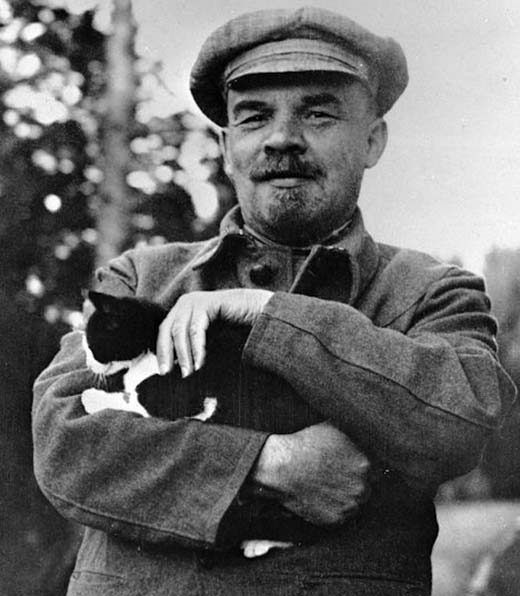
On October 20, 1917, Lenin illegally arrived from Vyborg to Petrograd. November 6, 1917 (24.10) After 6 in the evening, Lenin left the conspiracy apartment of Margarita Fofanova, at the address Serdobolskaya Street House No. 1 Apartment No. 41, leaving a note: "... went there, where you did not want me to leave. Bye. Ilyich. " In order to conspire, Lenin changes the appearance: it puts on an old coat and a cap, hears the cheek with a handkerchief. Lenin, accompanied by E. Rakhia, heads for Sampwehonian Avenue, driving to Botkinskaya st., The casting bridge passes, turns onto the solar, on the way, delayed jankers twice and finally comes to Smolny (Leontyevskaya st., D. 1).
Arriving in Smolny, proceeds to the leadership of the uprising, the direct organizer of which was the chairman of the Petrograd Council L. D. Trotsky. Lenin offered to act hard, organized, quickly. Next, it is impossible to wait. It is necessary to arrest the government, without leaving the authorities in the hands of Kerensky until October 25, disarmed junkers, mobilize areas and shelves, send representatives from them in VRK and the Central Committee of Bolsheviks. On the night of October 25-26, the temporary government was arrested.
For the overthrow of the government, A. F. Kerensky took 2 days. November 7 (October 25) Lenin wrote an appeal to the deployment of a temporary government. On the same day, the Leninist Decorates about the world and the Earth and the Government are educated and the government of the People's Commissars led by Lenin was adopted at the II All-Russian Congress of Soviets. On January 5, 1918, the Constituent Assembly was opened, the majority in which they received the essentials that represented the interests of the peasants who at that time were 80% of the country's population. Lenin, with the support of the Left Socialists, put the Constituent Assembly before choosing: to ratify the power of the Councils and the decrees of the Bolshevik government or to disperse. The constituent assembly did not agree with such a statement of the issue and was forcibly dissolved.
For 124 days "Smolnninsky period", Lenin wrote over 110 articles, projects of decree and resolutions, pronounced over 70 reports and speeches, wrote about 120 letters, telegrams and notes, participated in editing more than 40 state and party documents. The working day of the chairman of the SNK lasted 15-18 hours. For the specified period, Lenin chaired 77 SNK meetings, led 26 meetings and meetings of the Central Committee, participated in the 17th meetings of the All-Russian WFIC and its Presidium, in the preparation and holding of 6 different All-Russian congresses of workers. After moving the Central Committee of the Party and the Soviet Government from Petrograd to Moscow, from March 11, 1918, Lenin lived and worked in Moscow. Lenin's personal apartment and work office were located in the Kremlin, on the third floor of the former building of the Senate.
15 (28) January 1918 Lenin signs the decree of SNK on the creation of the Red Army. In accordance with the decree of the world, it was necessary to get out of world war. Despite opposition to the left communists and L. D. Trotsky, Lenin achieved the conclusion of the Brest peace treaty with Germany on March 3, 1918, the left ashors in protest against the signing and ratification of the Brest peace treaty came out of the Soviet government. March 10-11, fearing the seizure of Petrograd by German troops, at the proposal of Lenin Sovvrkkom and the Central Committee of the RCP (b) moved to Moscow, which became the new capital of Soviet Russia.
On August 30, 1918, an attempt was made on Lenin, according to the official version - ARCE, who led to severe injury. After the attempt of Lenin, Vladimir Mintz successfully operated successfully.

The Denuncation of the Brest World WCTC in November 1918, Lenin's authority in the party was significantly strengthened. Doctor of Philosophy on History, Professor Harvard University Richard Pipes describes this situation so much: "I droinantly go to the humiliating world, which gave it to win the necessary time, and then hit under the action of his own severity, Lenin deserved widespread trust of the Bolsheviks. When on November 13, 1918, they broke up the Brest world, after the Germany capitulated the Western Allies, Lenin's authority was ascended in the Bolshevik movement on an unprecedented height. Nothing better served his reputation of a person who does not make political mistakes; Never had ever had to threaten to resign to insist on his. "
Being the chairman of the Sovnarkom of the RSFSR, from November 1917 to December 1920, Lenin held 375 meetings of the Soviet government out of 406. From December 1918 to February 1920, from 101 sessions of the Council of Workers' and Peasant Defense only did not presidate. In 1919, V. I. Lenin led the work of 14 plenums of the Central Committee and 40 Politburo meetings, on which military issues were discussed. From November 1917 to November 1920, V.I. Lenin wrote over 600 letters and telegrams on various matters of defense of the Soviet state, over 200 times spent on rallies.
In March 1919, after the failure of the initiatives of the Entente countries, to stop civil war in Russia, secretly arrived in Moscow on the instructions of US President V. Wilson and the British Prime Minister D. Lloyd George V. Bullit proposed to conclude Soviet Russia peace with all other governments, Formed on the territory of the former Russian Empire, while paying together with them its debts. Lenin agreed to this proposal, motivating this solution as follows: "To be too expensive for us the price of the blood of our workers and soldiers; We are like merchants to you, pay for the world by the price of hard tribute ... if only to preserve the life of workers and peasants. " However, began in March 1919, initially successful, the offensive of the army A. V. Kolchak on the Eastern Front against the Soviet troops, the confidence in the countries of the Country of Soviet authorities, led to the fact that the negotiations were not continued by the United States and the UK.
In 1919, the Communist International was created on the initiative of Lenin.
On the night of July 16, July 17, 1918, the former Russian emperor Nicholas II was shot along with his family and serving under the decree of the Ural Regional Council in Yekaterinburg, headed by the Bolsheviks.
In February 1920, the Irkutsk Bolshevik VRK was secretly shot by Admiral A. V. Kolchak, who was under arrest in Irkutsk prison after issuing him to the Allies of the ECO-Menshevik politicalcenter. According to a number of modern Russian historians, it was done in accordance with the order of Lenin.

Disease and death of Vladimir Lenin
At the end of May 1922, Lenin on the soil sclerosis of the brain vessels happened the first serious attack of the disease - was lost speech, weakened the movement of the right limbs, there was an almost complete loss of memory - Lenin, for example, did not know how to use a toothbrush. Only on July 13, 1922, when Lenin's condition improved, he was able to write the first note. From the end of July 1922, Lenin's condition had worsened again. Improvement occurred only in early September 1922
In 1923, shortly before death, Lenin writes his latest work: "On cooperation", "How to reorganize Rabkrin", "better less, yes better", in which its vision of the economic policy of the Soviet state and measures to improve the work of the state apparatus and party. On January 4, 1923, V. I. Lenin dictates the so-called "Adding to a letter dated December 24, 1922", in which, in particular, the characteristics of individual Bolsheviks applying to the role of the party leader (Stalin, Trotsky, Bukharin, Pyatakov) were given .
Presumably, Vladimir Ilyich's disease was caused by the strong overload and the consequences of the attempted 30 August 1918. At least these reasons are referred to the authoritative researcher of this issue Surgeon Lopukhin Yu. M.
For treatment, leading German specialists in nervous diseases were caused. The main doctor of Lenin from December 1922 and up to his death in 1924 was Sphrid Ferstern. Lenin's last public speech took place on November 20, 1922 at the Plenum of the Mossovet. On December 16, 1922, the state of his health has again deteriorated sharply, and on May 15, 1923, due to illness, he moved to the near Moscow estate. From March 12, 1923, Lenin Health Bulletins were published daily. In Moscow, Lenin was the last time on October 18-19, 1923. During this period, he, nevertheless, dictated several notes: "Letter to the congress", "On the attachment of the legislative functions of state", "To the issue of nationalities or about the" autonomization "," page from the diary "," On cooperation ", "About our revolution (about N. Sukhanov's notes)", "How to reorganize Rabbitrin (offer XII party congress)", "better less so better."
Pictured by Lenin "Letter to the Congress" (1922) is often considered as Lenin's testament.
In January 1924, a sharp deterioration has suddenly come in the health state of Lenin; January 21, 1924 at 18 o'clock 50 minutes he died.
The official conclusion of the cause of death in the protocol of the opening of the body was reading: "... the basis of the disease of the deceased is the common atherosclerosis of the vessels on the soil of premature wear (Abnutzungssclerose). Due to the narrowing of the glorification of the arteries of the brain and the violation of its nutrition from the insufficiency of the blood intake, focal softening of the brain tissues occur, explaining all the preceding symptoms of the disease (paralysis, speech disorders). The immediate cause of death was: 1) strengthening the circulatory disorders in the brain; 2) Hemorrhage in a soft cerebral shell in the Quadrahmia region. " In June 2004, an article was published in the Europen Journal of Neurology magazine, the authors of which suggest that Lenin died of neurosimifilis. Lenin himself did not rule out the possibility of syphilis and therefore took Salvarsan, and in 1923 it was still trying to be treated with drugs based on mercury and bismuth; A specialist in this area Max Nonn was invited to him. However, the guessed was refuted. "Absolutely nothing testified of Syphilis," Nonn recorded later.
Growth of Vladimir Lenin: 164 centimeters.
Personal life of Vladimir Lenin:
Apollinaria Yakubov and her husband were the closest companions of Lenin and his wife's hopes of Krupskaya, who periodically lived in London from 1902 to 1911, although it was known that Yakuboy and Lenin had a stormy and tense relationship due to politics in the RSDLP.
Robert Henderson, a University of London, a specialist in the University of London, found a photo of Yakubova in the depths of Garf in Moscow in April 2015.
Apollinaria Yakubov

The main works of Vladimir Lenin:
"To the characteristic of economic romanticism," (1897)
What kind of inheritance do we refuse? (1897);
Development of capitalism in Russia (1899);
What to do? (1902);
Step forward, two steps ago (1904);
Party organization and party literature (1905);
Two tactics of social democracy in the Democratic Revolution (1905);
Marxism and revisionism (1908);
Materialism and empiriocriticism (1909);
Three sources and three components of Marxism (1913);
On the right of nations on self-determination (1914);
On violation of unity, covered with shouts about unity (1914);
Karl Marx (a brief biographical essay with the statement of Marxism) (1914);
Socialism and War (1915);
Imperialism as the highest stage of capitalism (popular essay) (1916);
State and revolution (1917);
Tasks of the proletariat in our revolution (1917)
Threatening catastrophe and how to deal with it (1917)
About dvoevsty (1917);
How to organize a competition (1918);
Great Main (1919);
Children's disease "Levizna" in communism (1920);
Tasks of union youth (1920);
About food tax (1921);
Pages from the diary, about cooperation (1923);
About the fancy of the Jews (1924);
What is Soviet power? (1919, publ.: 1928);
About left guys and petty-bourgeoisatics (1918);
About our revolution (1923);
Letter to the Congress (1922, announced: 1924, publ.: 1956)
Who is Lenin?


In the history of our state there were several political figures whose contribution cannot be overestimated. One of them, no doubt, is Vladimir Ilyich Lenin. In this article, we will consider who Lenin and who was this man in general.
Lenin: Early years
First of all, it is worth noting that "Lenin" is the unreal name of Vladimir Ilyich. His real name - Ulyanov. But we will not stop in detail on this fact of the biography. If you are interested, then in the article of our site: the various versions are presented, why the Soviet leader changed the surname.
Let's go back to the biography. Vladimir was born on April 22, 1870 in Simbirsk in the family of an official. He studied in the gymnasium, graduated with a gold medal. Sited a symbirsk religious society.
An essential imprint on the worldview of Vladimir left the execution of brother in 1887. At the same time, the future leader goes to Kazan University, from where it is subsequently expelled for figuratively in student unrest. In 1889, the whole family moves to Samara, where Vladimir begins to actively learn Marxist philosophy.
In 1891, Lenin ends the Law Faculty of St. Petersburg State University, and in 1893 it moved to St. Petersburg and is arranged there to work. Already by 1894, Lenin formulates for itself the idea that the proletariat should become an instrument of the communist revolution. And in 1895, the St. Petersburg "Union of the struggle for the liberation of the working class" is created with the participation of Vladimir Lenin. For this future, the leader is sent to Siberia. In Siberia, Lenin marries N. K. Krupskaya.
Lenin: Mature years
In 1900, Lenin leaves abroad. There, together with G. V. Plekhanov, begins to publish the first illegal Marxist newspaper "Spark". In 1903, Vladimir Ilyich heads the Bolshevik Party. And in the period from 1905 to 1907. Lives in St. Petersburg under someone else's name and leads the central and St. Petersburg committees of the Bolsheviks.
During World War I, Lenin lives in Switzerland. Petrograd returns in April 1917. Immediately offers the slogan "All Power Soviets!" What causes a storm of indignation and misunderstanding even from the side of close associates. But literally in a few weeks, Vladimir Ilyich managed to convince his party in the correctness of the "April theses". In July, Lenin had to go to the next underground. But in October of the same year, Lenin becomes the chief organizer of the October armed uprising. During the October uprising, the Provisional Government was arrested and a new government was formed - the Council of People's Commissars led by Lenin. In November, Lenin contributes to the establishment of Soviet power in Moscow, where the capital of the country was submitted in the future.
The value of the identity of Lenin
The attitude of the descendants to the personality of Vladimir Ilyich Lenin varies from sharply critical to infinitely admiring. One way or another, no one will argue with the fact that Lenin became one of the key people in the history of Russia. First of all, this Soviet politician is the creator of the Russian Social Democratic Party. It is also one of the organizers of the October Revolution of 1917. Well, and no less important: he is the creator of the first in the world history of the Socialist state.
Vladimir Lenin (Name Name: Vladimir Ilich Ulyanov) - the famous revolutionary, the country's leader of the Councils and the leader of the working people of the whole world, the founder of the first in the world history of the socialist state, the creator of the Communist International.He was one of the key ideological inspirations of the October Revolution of 1917 and the first chapter of a new state created on the basis of the union of equal republics and theory on the follow-up world revolution.
In the USSR, he was an object of incredible worship and cult. He was glorified, they were exalted and idealized, called a serian, giant of thought and a turning genius. Today in different layers of society, the attitude towards it is very contradictory: for some, he is the largest political theoretical, which influenced the course of world history, for others, is the author of particularly cruel concepts for the destruction of compatriots who destroyed the foundations of the country's economy.
Childhood
The future large politician appeared on April 22, 1870 in Simbirsk (now in his honor it was called Ulyanovsky), the city on the Volga, in the intelligent family of teachers. In his family there were no Russians: Mama Maria Alexandrovna came from the Germans with a mixture of Swedish and Jewish blood, Father Ilya Nikolayevich - from Kalmykov and Chuvash. He was engaged in inspection of folk schools and made a very successful office career: he received the rank of a valid Stat adviser who gave the right to the noble rank. 
Mom dedicated himself to raising children who had five in their family: Anna's daughter, Alexander's sons, Vladimir, Dmitry and the youngest child - Maria or Manyas, as her loved ones called. The mother of the family eased graduated from the pedugotist, knew several foreign languages, played on the piano and passed their knowledge and skills, including exceptional accuracy in everything.

Volodya knew Latin perfectly, French, German, English, a little worse - Italian. Love for languages \u200b\u200bhas survived him throughout his life; Shortly before the death, he began to learn Czech. In the gymnasium, he preferred philosophy, but also in the rest of the disciplines had excellent marks.

He grew up in a curious boy, loved to arrange noisy games with brothers and sisters: to a horse, in the Indians, in the soldiers. Considering the "Uncle Tom Hut", he imagined himself by Abraham Lincoln, thumb ridges.
In the last year of study, in 1986, his father died. After a year, their family has suffered another grave test - Alexander's brother's penalty through hanging. The young man was good in the natural sciences, because the terrorists who prepared at Alexander III were recruited to create an explosive device. In the case of Ulyanov passed as one of the organizers attempt to kill the king.
Formation of political consciousness
At the end of the gymnasium, a young man began to study jurisprudence at Kazan University. At 17, he did not differ political activity. Lenin's biographers believe that the decision to change the political system to a large extent was dictated by the death of Alexander. Deeply surviving brother's death, Volodya became interested in the idea of \u200b\u200boverthrowing tsarism. 
Soon he was excluded from the university for participating in student riots. At the request of the sister's mother's love form, he was expelled to the village of Kukushkino Kazan province, for about a year he lived in aunt. Then his political views began to be formed. He was engaged in self-education, I read a lot of Marxist literature, as well as the works of Dmitry Pisarev, Georgy Plekhanov, Sergey Nechaeva, Nikolai Chernyshevsky.
The revolution of the proletariat will completely destroy the division of society into classes, and consequently, any social political inequality.
In 1889, Maria Alexandrovna, demonstrating his immense love and support to the Son who needed money, sold a house in Simbirsk and acquired a farm in Samara province for 7.5 thousand rubles. She hoped that Vladimir would find an invenue in the ground, but without the experience of agriculture, it did not work successful from the family. They sold the estate and moved to Samara.

In 1891, the authorities allowed Ulyanov to pass exams for the first course of the law faculty of St. Petersburg University. A little less than a year, Vladimir was an assistant attorney. This service was boring him, and in 1893 he went to the northern capital, where he was engaged in lawyer practice and the study of the ideology of Marxism. By this time, he finally developed as a person, his views evolved: if earlier he bowed to the ideas of populists, he now became a supporter of Social Democrats.
The path in the revolution
In the 1895th young man left to Europe, where he met with members of the Russian Marxist Group "Liberation". Returning to the city on the Neva, he in partnership with Julia Martov founded the Union of Fight. They were engaged in the leadership of strikes, the release of the working newspaper with the articles of Ulyanov, the spread of leaflets.We must deal with religion. This is the alphabet of all materialism and, therefore, Marxism. But Marxism is not materialism, who has stopped on the alphabet. Marxism goes on. He says: We must be able to fight with religion, and for this it is necessary to materialistically explain the source of faith and religion at the masses.
Soon, Vladimir was arrested and sent for 3 years in a link to the Siberian village Shushenskoe, where he later wrote more than three dozen articles. Upon completion of the sentence, Ulyanov went abroad. Once in Germany, in 1900 he initiated the exit of the famous Spark newspaper. Then he began to sign his writings and articles by the pseudonym Lenin. Vladimir Ilyich laid high hopes on the spark, believing that she was ralling disobedient revolutionary organizations under the banner of the Marxist ideology.

In 1903, the II Congress of the RSDLC prepared by the revolutionary II was held in Brussels, where he was split on his adherents of the seizure of power by armed and on supporters of the classical parliamentary path - Mensheviks, and the party program developed together with Plekhanov was accepted. In 1905, at the I party conference in Finland, he first met Stalin.
Every extreme is not good; All the good and useful, informed to the extreme can also become even, for the famous limit, necessarily becomes evil and harm.
The victory in the February Revolution of 1917, who led to the overthrow of the monarchy, Lenin met abroad. Arriving home, he called for an uprising against the temporary government. His organization was engaged in Lion Trotsky, head of the Petrograd Council. Memorial 25 Bolsheviks, with the support of the proletariat, captured power. Lenin headed completely new in the form of the Government of the RSFSR - Council, signed decrees of land (confiscation of landlord land) and the world (negotiations on non-violent reconciliation of all warring countries).

After October
Destroy agreed in the country, and in the heads of people - the Scheos chaos them. Lenin signed a decree on the creation of the Red Army and the humiliating Brest world to be able to focus on internal problems. Many bright minds of the country, without assessing his ideas, emigrated, others joined white movement. Civil war broke out.No one is wrong if he was born a slave; But the slave, which not only alien to the desire for his freedom, but justifies and embellishes his slavery, such a slave is the lawful feeling of indignation, contempt and disgust - to holly and Ham.
During this period, the leader of the Bolsheviks gave an order about the execution of the entire royal family. Nicholas II with his wife, five of their children and approximate servants were killed on the night of July 16-17 in Yekaterinburg. It should be noted that the question of Lenin's involvement in the shooting of Romanovs is still discussion.

In 1918, two attempts occurred on Lenin (in January and August) and the murder of the chief Chekist Petrograd Moses Uritsky. As an answer to the power on the initiative of Felix Dzerzhinsky, a red terror was organized. Within its framework, the decree on the death penalty was revived, the creation of concentration camps began, practiced a violent call in the army, the pogroms of the Orthodox churches.
Lenin speech before the Red Army (1919)
The Bolsheviks introduced a tough and inefficient concept of "military communism", attracting people to free public works to 16 hours a day, conducted confiscation of food, market elimination.

These actions provoked mass hunger and crisis, forcing the country's leader to develop a new economic policy (NEP). She gave positive results, but he could not fix all the mistakes due to the shameless health.
Personal life of Vladimir Lenin
The first head of the USSR was married. With his chief, the smart and devoted case of Marxist, the hope of Krupskaya he met in 1894 during the creation of a "union of struggle." After 4 years, they were married, taking their relationship to obtain permission to serve the link in Shushensky together. 
The spouses did not acquire the offspring, although those who knew their people argued that they really wanted to have at least one child. The reason for this was called unfavorable for the emergence of children.
A person needs an ideal, but human, corresponding to nature, not a supernatural.
According to the researchers, until the death of Chet has connected not intimate proximity, but strong friendship. The leader considered his wife with his reliable and main support in life. She repeatedly offered him freedom, in particular, so that he could marry his next mistress - Inesse Armand, with whom hope has developed excellent relations. But he always refused, did not want to let her go.

The politician did not differ in particular attractiveness, had a speech defect - a moldability, but possessed powerful charisma, shrill eyes, could almost hypnotically affect the surrounding.
Death
In May 1922, the leader of the Bolsheviks had a stroke with a violation of speech and paralysis of the right side of the body. By the fall, the disease retreated, and he returned to cases, demonstrating colossal performance. He performed at the Fourth Congress of the Comintern, held a number of meetings of the Council of State, Politburo meetings, wrote about two hundred business notes and orders for 2 months. But in December and then in March next year there were re-strokes. Lenin moved from the capital to the suburban residence slides, closer to nature healing silence and fresh air.Rare frames with the funeral of Vladimir Lenin
In January 1924, there was a sharp deterioration in the state of the health of the people's leader, and the 21st numbers he died from hemorrhage into the brain. The reasons for his care were also called atherosclerosis, syphilis, a genetic disease, which led to the "petition" of the vessels of the brain and even pool poisoning. However, all this is only hypotheses.

After the death of the leader, it was decided to create a mausoleum from the Kremlin wall for its burial. On January 27, a temporary wooden burial structure was erected on January 27, where Ilyich's body was placed. Now in its place is the mausoleum from the red brick. The harnessed leader of the peoples rests there to this day.
